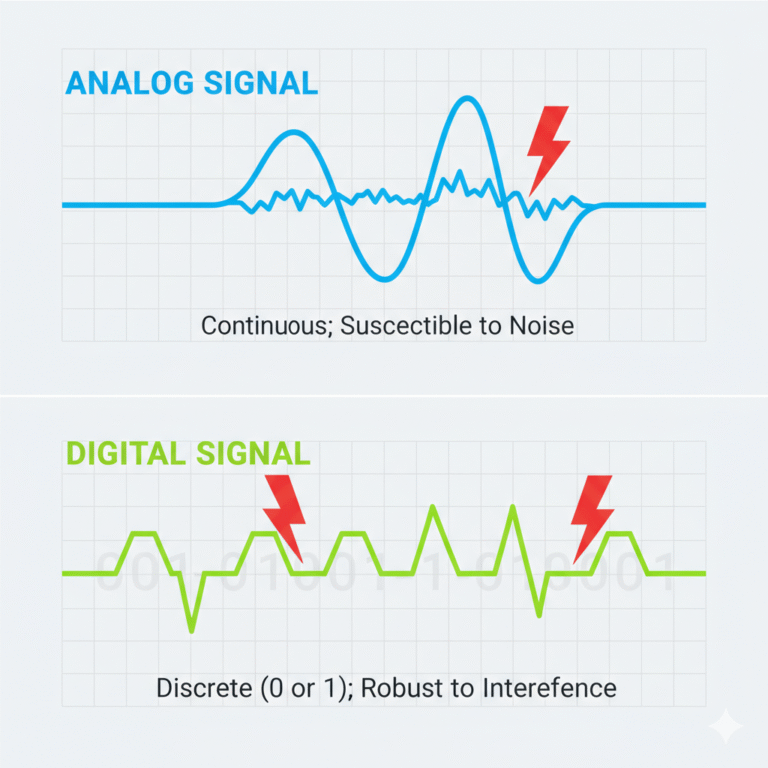In the field of instrumentation, understanding the differences between analog and digital instruments is crucial for making informed decisions. This article explains why digital instruments are more stable and less susceptible to environmental interference compared to their analog counterparts.
Analog vs. Digital Signals
In analog instruments, signals are continuous, meaning they can fluctuate infinitely within a given range. This characteristic makes them vulnerable to external disturbances, even those that are very small. As a result, any interference can cause signal distortion, and zero points can drift easily. The lack of error detection in analog systems makes them less reliable in environments with high levels of electrical noise.
On the other hand, digital instruments use discrete signals, typically represented as either 0 or 1. This binary system makes digital instruments more resilient to external interference. As long as the noise does not significantly affect the signal to cause it to flip from 0 to 1 or vice versa, the instrument’s output remains stable. This inherent stability makes digital instruments highly reliable, especially in environments with significant electrical noise.

Error Detection in Digital Instruments
Another significant advantage of digital instruments is the ability to implement error detection and correction techniques. In digital systems, errors caused by noise or distortion can be detected and corrected, ensuring that the output remains accurate. This level of robustness is not available in analog systems, where even small amounts of noise or signal distortion can go undetected, leading to inaccurate measurements.
The Role of Digital Technology in Modern Instrumentation
Digital technology offers several benefits over analog systems, especially in complex industrial environments. Digital instruments, such as smart transmitters and fieldbus-enabled devices, can be easily integrated into modern control systems. They allow for real-time diagnostics, remote configuration, and advanced communication protocols, which make them ideal for industrial automation and process control.

Conclusion
In summary, digital instruments offer greater stability and reliability than analog instruments, particularly in environments prone to electrical interference. Their ability to process signals with higher accuracy, along with error detection capabilities, makes them indispensable for modern industrial applications. As industries continue to move towards more automated and interconnected systems, digital instruments will play a key role in ensuring efficient, accurate, and reliable operations.
